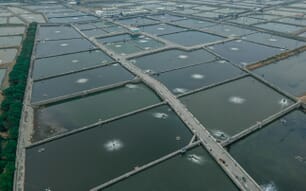The fillets were cooked by chef Eddy Leung, who told reporters with the Thomson Reuters Foundation that they looked and smelled like normal fish, but had the consistency of crab cakes.
"Before I cooked the fish it was quite firm, but after I cooked it the texture changed to being like real fish," Leung said.

The fish, provided by Avant Meats, represents a crucial step towards meeting the increasing demand for seafood and meat that doesn’t undermine global climate goals. The company says that growing fish biomass in the lab is faster than conventional aquaculture. While it can take some fish species one or two years to reach slaughter weight, Avant Meat’s offering took two months to produce.
The company produced 10 fillets from a sample of grouper cells that proliferated in a bioreactor. Avant’s chief scientific officer Mario Chin told Reuters that cull culture technology can produce a variety of animal proteins. Depending on the availability of bioreactors, cell-based seafood can be produced anywhere.
According to Elaine Siu, managing director of the non-profit Good Food Institute (GFI) Asia Pacific, “…cultivated meat gives consumers the animal protein they want without having to deplete oceans or chop down the rainforest to get it.”
If the technology is widely adopted, input costs and greenhouse gas emissions stemming from meat production could shrink dramatically. A 2011 study from Oxford University found that cell-based meat and seafood could reduce agriculture and aquaculture’s land use by 99 percent and decrease its water use by 96 percent.
Though these developments are set to disrupt the $ 1 trillion global meat industry, lab-grown meat and seafood will likely serve a niche market if they reach commercialisation. Energy costs mean that the technology is difficult to scale. Any cell-based products on the market will likely serve consumers who are willing to pay a premium.




